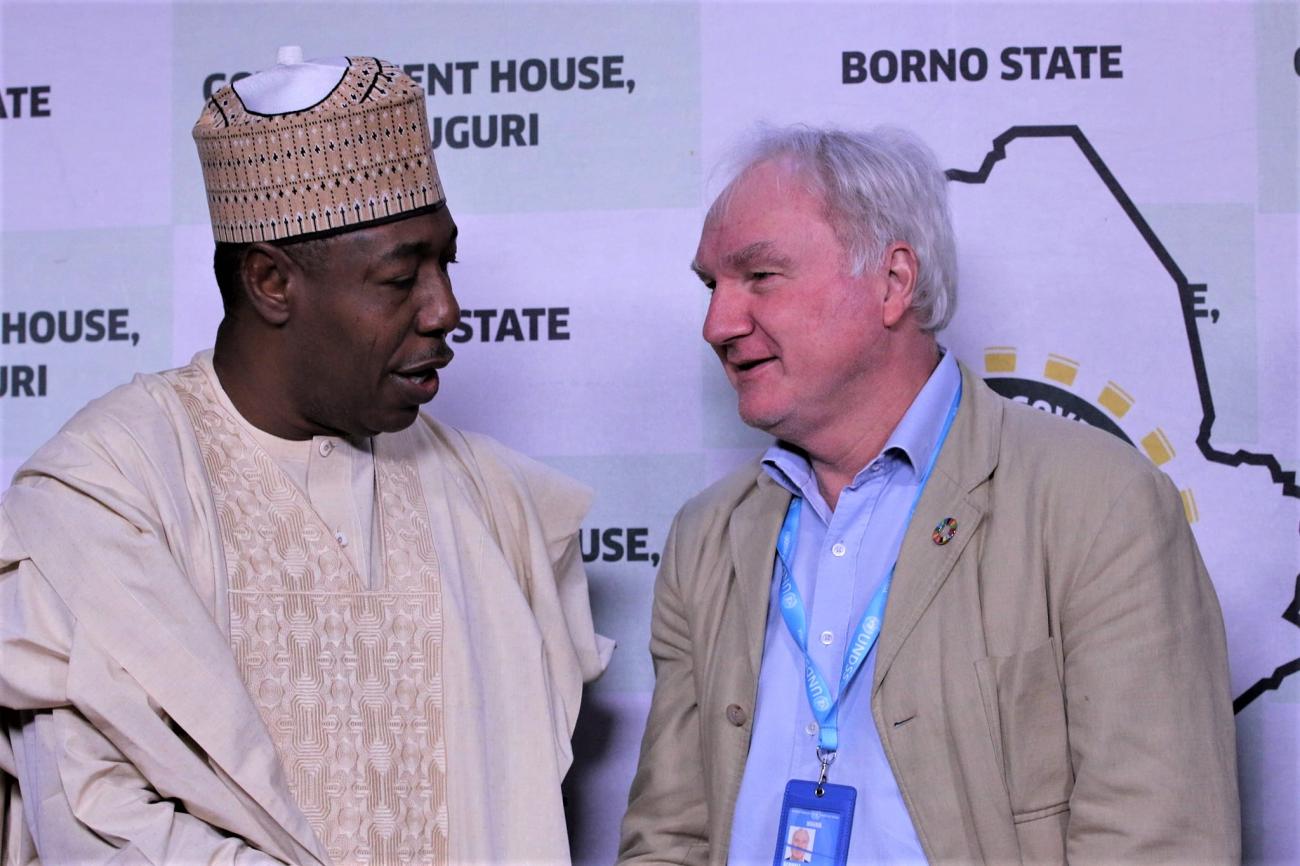“Thousands of displaced women and men in Damasak, Borno State, hope that one day soon their homes will be safe enough to return to."
To strengthen humanitarian response, coordination, and support in north-east Nigeria, the United Nations Resident and Humanitarian Coordinator for Nigeria, Mr. Matthias Schmale, has visited critical stakeholders in Borno State as part of his first official visit to the conflict-affected region.
Schmale interacted with internally displaced people, both men and women groups at Bama and Muna IDP camps, Borno State to hear from them what their needs are, and how they would want the humanitarian community to support them. He listened to the deeply moving accounts of severe hardships by women IDPs in Borno State and empathised with them.
The Resident/ Humanitarian Coordinator also had constructive discussions with Borno State Governor, Professor Zulum Babagana, and military officials, who challenged humanitarian community and the UN in Nigeria to do more in support of efforts to help vulnerable people overcome aid dependence and build more dignified lives.
To underscore the importance of traditional institution and military establishment to peace and security of the region, Mr Schmale paid a courtesy visit to the Shehu of Borno, Alhaji Abubakar Ibn-Umar Elkenemi; and the Theatre Commander of Operation Hadin Kai (OPHK), Maj-Gen. Christopher Musa in Maiduguri.
He also visited Bama and Dikwa towns and met with internally displaced people, local government authorities including the Commander, 21 Special Armoured Brigade Bama, Brig.-Gen. Adewale Adekeye; the Executive Chairman of Bama Local government areas, Hon Abba Kolo, and his Dikwa LGA counterpart, Hon Muhammad Alhaji Gumsama.
Sharing his experience in Borno State, Mr. Schmale said, “Thousands of displaced women and men in Damasak, Borno State, hope that one day soon their homes will be safe enough to return to. I heard about the insecurity they continue to fear, the assistance they need and their efforts to care for themselves and their families.”



